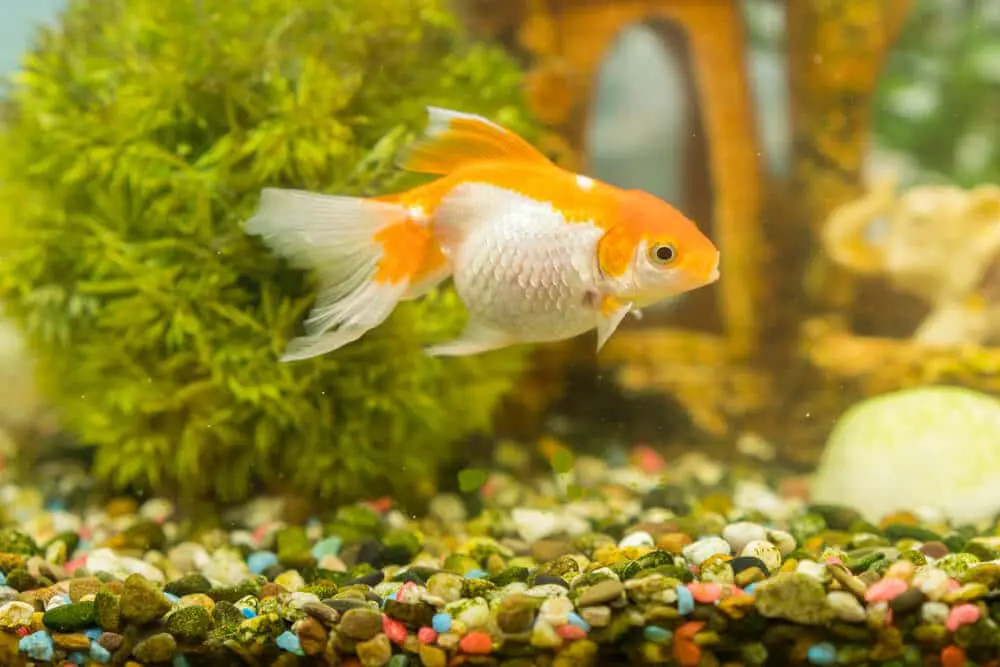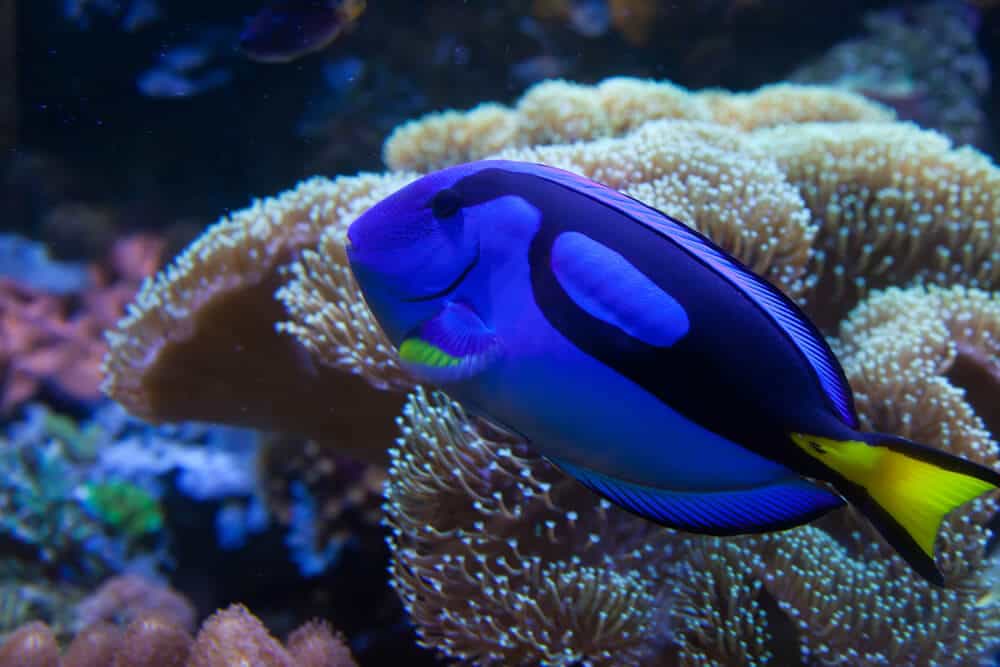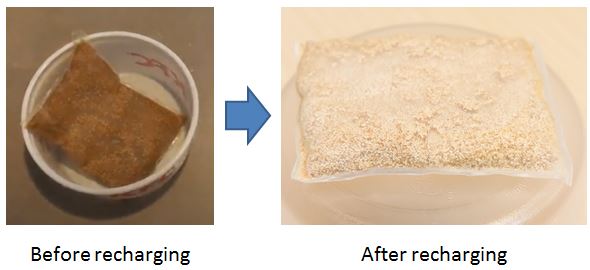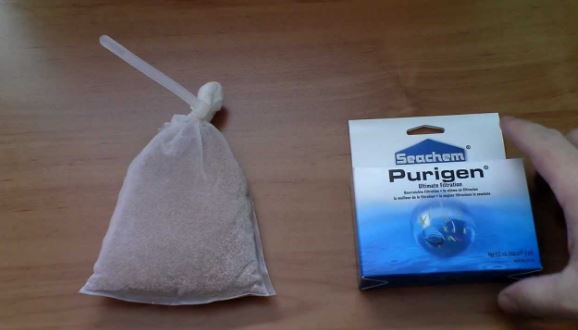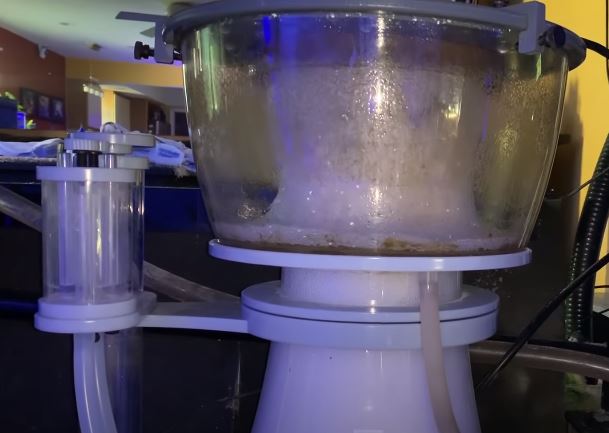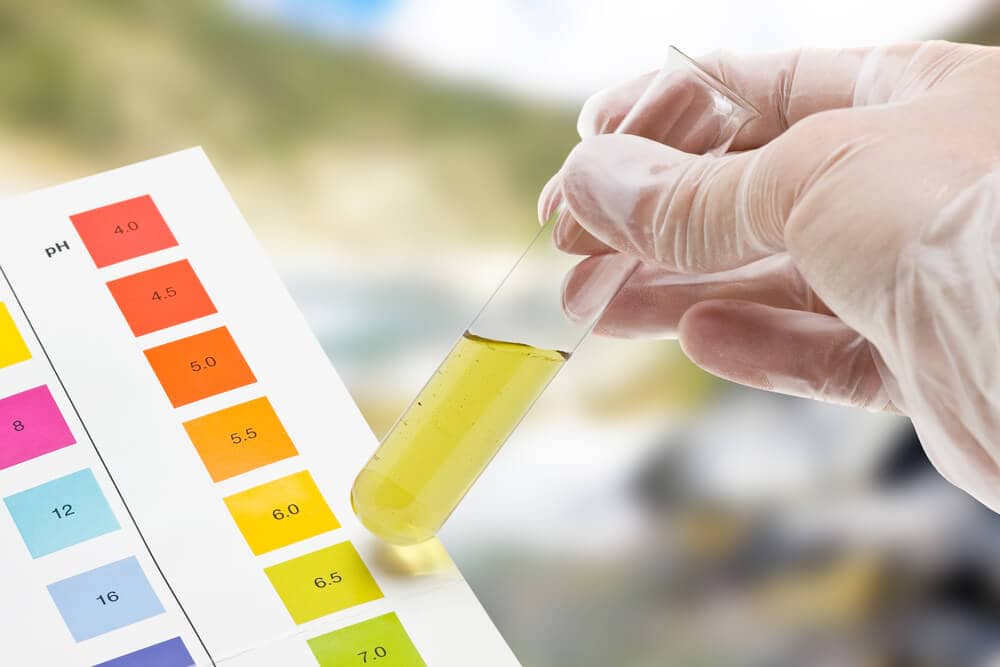
Take two glasses of water from different sources and they are going to look the same. Your eyes are not going to tell you if one is better than the other.
BUT…
When it comes to your pet fish, this is important.
The composition of your tank water can directly affect your fish. This is true for both freshwater and saltwater aquariums. This is their home and you want the water to be good.
So, how do you make sure?
Today I’m going to tell you the way you can test the tank water quality for your lovely pet fish.
Here it is. The aquarium water test kit.
Before you can pick the best one for your tank, let’s talk about the important things you need to know!
Contents
- 1/ The important things you should know before buying an aquarium
water test kit.
- What is an aquarium water test kit?
- Why should you use an aquarium test kit?
- Are there any other ways to check the water parameters without using test kits?
- What are the issues for aquarium water?
- So do we need to test all of the above water parameters?
- What are the ideal water parameters for your aquarium?
- 2/ Best aquarium water test kits reviews
- 3/FAQ
- 4/ Conclusion
1/ The important things you should know before buying an aquarium water test kit.
What is an aquarium water test kit?
An aquarium water test kit is equipment that helps you understand what your tank water is made up of.
Water has all kinds of different elements. Some of these elements are good and some are bad. Different levels can affect the health of your fish.
A test kit helps you understand things about your water. Regular testing is important as your tank levels can change. If your tank becomes unbalanced it will affect your fish. It can make them sick and die.
A test kit can include test tubes, testing solution, color cards and most important, an instruction guide.
Some kits are more user-friendly. Some take specialized knowledge to use. It is important to carefully choose which kit you are going to use.
Why should you use an aquarium test kit?
Let’s go back to the glass of water. You don’t know what is in it.
- What is the pH level?
- Does it have ammonia?
- What about nitrite?
- What about nitrate?
- …………………………
If your nitrites level is too high, your fish could die. Any imbalance in the tank water can cause chaos.
An aquarium test kit helps you understand the home your fish are living in – and how to keep it healthy. By constantly testing the water with a test kit, you ensure the water parameters are within safe levels or can quickly act if they are not – saving the lives of your fish.
Years ago, I decided to have a fish tank. I bought everything I thought I’d need and stocked the tank with fish. Within 24 hours, they were all dead.
My first mistake – I didn’t let the water stand. I was using city tap water and the fluoride killed my fish.
Next mistake – I decided to put a bunch of rocks in the tank to make it more interesting. The problem was the rocks I used changed the pH level and killed them.
If I’d had a testing kit, I could have made sure the water was proper to welcome my fish. This all was an upsetting costly mistake.
Are there any other ways to check the water parameters without using test kits?
Yes.
There are other ways to test the quality of the water in your aquarium: Digital Meter Test Pen and Test Strips.
The range of their accuracy goes from test strips (least accurate), test kits (accurate) and digital/scientific probes (precise).
Digital Meter Test Pen

If money is not an issue, then the Digital Meter Test Pen gives immediate, precise results.
Pros: Precise, immediate results
Cons: Very expensive
Test Kits

Highly recommended for the aquarium hobbyist. Test kits provide accurate results against a good range of potential water issues.
Pros: Inexpensive, accurate results.
Cons: Takes time for preparation, not simply to use compared to test strips.
Test Strips

Not recommended for the aquarium hobbyist. Test trips assess a variety of issues ranging from 1 to 6 types of water issues. The results are immediate but may not be accurate depending on the age of the strips and how they have been stored.
Pros: Instant results, simple to use, inexpensive.
Cons: Least accurate, hard to store (sensitive to humidity), use-by-date.
I recommend you use test kits as they are accurate and cost-effective.What are the issues for aquarium water?
There are many issues for aquarium water that pet fish owners need to consider.
For the aquarium hobbyist, there are six key elements that need to be tested:
- Power of Hydrogen (pH)
- General Hardness (GH)
- Carbonate Hardness (KH)
- Ammonia
- Nitrites (N02)
- And Nitrates (NO3)
This is a generalization for freshwater and saltwater tanks.
Calcium, salinity, copper, iodine, iron, phosphate, potassium and silicate elements can also affect the quality of your water and health of your fish if you have a saltwater tank.
If you are investing in expensive fish, it would be good to check for them prior to introducing your fish to their home.
Different fish have different requirements. So it’s important to do your research and understand the balance your tank needs.
So do we need to test all of the above water parameters?
The answer could be yes, but then that means you need to buy more than 10 different test kits for each of the different elements listed above.
You might think this could be a lot of work and money. It’s going to take you time, right?
Here is a good thing. You DON’T need to do this.
And there is good news. Some single test kits that are suitable for fresh or saltwater aquariums can be purchased as one product. They are called master test kits. We will introduce to you the best of these products.
But right before we dive in the best product reviews, let’s better understand the ideal water parameters for your aquarium.
What are the ideal water parameters for your aquarium?
Getting the numbers correct on water parameters for your fish tank is important. There are different parameters for freshwater and saltwater fish.
Freshwater aquarium parameters
| No | Parameters | Freshwater Tropical Community | African cichlid | Goldfish |
|---|---|---|---|---|
| 1 | pH | 6.5-7-5 | 7.8-8.5 | 7.0-8.0 |
| 2 | Ammonia | 0ppm | 0ppm | 0ppm |
| 3 | Nitrite | 0ppm | 0ppm | 0ppm |
| 4 | Nitrate | <40ppm | <40ppm | <40ppm |
| 5 | KH | 80-120ppm | 180-240ppm | 120-240ppm |
| 6 | GH | 30-120ppm | 180ppm | 120-180ppm |
Saltwater aquarium parameters
| No | Parameter | Reef Aquarium | Fish only with live rock Aquarium | Coral Reef |
|---|---|---|---|---|
| 1 | pH | 8.1 - 8.4 | 8.1 - 8.4 | 8.0 - 8.5 |
| 2 | Alkalinity (KH) | 8 - 12 dKH | 8 - 12 dKH | 6 - 8 dKH |
| 3 | Salinity | 1.023 - 1.025 | 1.020 - 1.025 | 1.025 |
| 4 | Calcium | 350 - 450 ppm | 350 - 450 ppm | 380 - 420 ppm |
| 5 | Ammonia (NH3) | 0 ppm | 0 ppm | Near Zero |
| 6 | Nitrite (NO2) | 0 ppm | 0 ppm | Near Zero |
| 7 | Nitrate (NO3) | < 1.0 ppm | < 30 ppm | 0.25 ppm |
| 8 | Phosphate (PO4) | < 0.2 ppm | < 1.0 ppm | 0.13 ppm |
| 9 | Iodine | 0.06 - 0.10 ppm | 0.04 - 0.10 ppm | 0.06 ppm |
| 10 | Magnesium | 1250 - 1350 ppm | 1150 - 1350 ppm | 1300 ppm |
| 11 | Strontium | 8 - 14 ppm | 4 - 10 ppm | 8 - 10 ppm |
2/ Best aquarium water test kits reviews
So, what do you do?
The following are recommendations to ensure your fish tank is happy. These are the best test kits we recommend. They will give you the answer to “what is the matter with your tank”.
Understanding what the issue is the first step to solving the problem. Guessing will only hurt your fish. Let’s find out what your options are!
For freshwater aquariums
1/ API Freshwater Master Test Kit

Master Test Kits provide the necessary equipment to test a variety of potential water issues in your fish tank.
The API Freshwater Master Test Kit includes 7 bottles of testing solution, 1 color card and 4 glass tubes. It accurately measures the water content for ammonia, pH, high range pH, nitrate and nitrite.
This is perfect for the aquarium hobbyist as it is very user-friendly – and cost-effective.
2/ API GH & KH Test Kit

This is a one-use test product for General Hardness (GH) and Carbonate Hardness (KH).
It includes 2 bottles of testing solutions, 2 glass test tubes and 1 color card. It accurately measures the dissolved mineral content of water.
Water hardness directly affects your fish’s environment. Unless you are changing your water source, this is usually an initial test (when you set up your aquarium) and then maybe once a month to monitor your tank.
For saltwater aquariums
1/ Salifert Master Reef Testing Combo Kit – Saltwater Aquariums

This master kit tests for six elements: alkalinity, calcium, nitrate, pH, phosphate and magnesium. These are the core issues for saltwater tanks.
It’s cost-effective and provides accurate results. The 2 step instructions make it very user-friendly. It would be good if the instructions were laminated.
2/ Salinity Refractometer for Seawater and Marine Fishkeeping Aquarium
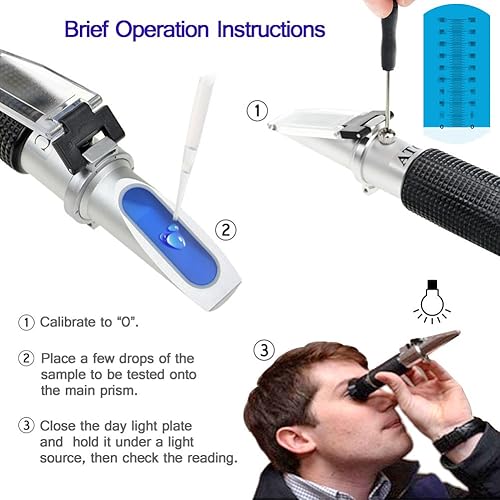
Unique to saltwater tanks, one of the issues is the salinity of the water.
The Refractometer measures on two scales: the specific gravity and parts per thousand.
It also has automatic temperature compensation. It’s a reliable monitor for ensuring you have the balance correct. This is important for your fish.
3/ Salifert Iodine Test Kit

Salifert Iodine Profi-Test measures all iodine compounds for a total concentration result. The results are very accurate as it is free from “interference from other elements found in saltwater”.
This kit is good value as it comes with 40 tests.
4/ Salifert AMPT Ammonia Test Kit

Make sure you keep this product out of the hands of children. It contains mercury salts. Make sure you wash your hands after using it. It’s pretty easy to use and takes about 5 minutes. It’s for saltwater tanks. There are fifty tests per kit.
5/ Salifert NIPT Nitrite Test Kit

This is a good value item. It has two different scales – ultra low and medium. It can be used for saltwater, freshwater and garden ponds. It’s good for up to 50 tests. It’s pretty straightforward to use. Simply add 1 ml of water to a test vial. Add the N02 powder. Shake it and wait 3 minutes.
6/ ATI ICP-OES Complete Saltwater Water Test Kit

Talk about a one-stop-shop. The ATI ICP-OES Complete Saltwater Test Kit does it all.
Simply purchase a test kit which includes a prepaid label, send your water in and wait for the results.
They test for boron, bromine, calcium, chloride, magnesium, sodium, sulfur and strontium (major elements). It includes tests for salinity and carbonate hardness. They also test for minor elements including phosphorus and mercury.
The difficulty is waiting for the results and it is expensive.
My picks for saltwater aquarium test kits.
To test your saltwater aquarium, I recommend review options from 1 to 5 as they are most cost-effective. You also have control of the testing and results.
Review option 6 might be a good option when you want to test all water parameters in your fish tank and money is not the problem.
3/FAQ
How to use test kits?
Make sure you read the instructions. Most test kits have a minimum of two steps.
- Check the expiry date on your product.
- Label your test tubes.
- Drop in the test solution.
- Give the test tube a shake to mix the solution with the tank water.
- Match the test tube with the color chart.
Yes, it is that simple.
How often should you test your fish tank?
When you first set up your fish tank, you should test it daily as it settles. This is the key as everything is new and could impact on the water quality.
Once all levels are consistent, you can test weekly.
If your fish tank goes cloudy or your fish seem slow or stressed, test your water.
In many cases, there are one or more elements that have gone high or low. Test daily until your fish tank stabilizes.
What is the difference between pH and the high range pH?
A pH test checks the level up to a point. If the result is on the high end, then the ‘high range pH’ test measures more accurately higher levels. This is particularly important for saltwater fish.
What is the difference in testing freshwater and saltwater tanks?
Saltwater tanks generally take more maintenance than a freshwater tank. This starts with the fact they require salination. You must create the saltwater and that balance is the first thing you will need to test for and monitor. Evaporation can affect the balance.
I bought a castle and some rocks for my tank. Should I retest?
Absolutely!
You’ve introduced new items to your tank. They can interact with the water and change the balance of some elements.
4/ Conclusion
You’ve bought an aquarium and support equipments, decided on the fish you are going to get and you’re putting it all together. The most important part of the tank is the water. It’s where your fish pets are going to live. The best way to make sure you are doing it correctly is using a test kit.
There is no other way to ensure the correct balance. Making a mistake can be costly with dead fish. The naked eye cannot see the different elements in the water in your tank. Using test kits helps protect your investment in your fish.
If you use a test kit to care for your fish tank, I’d love to hear your comments. If you have any questions on testing, you can also leave a message there.
